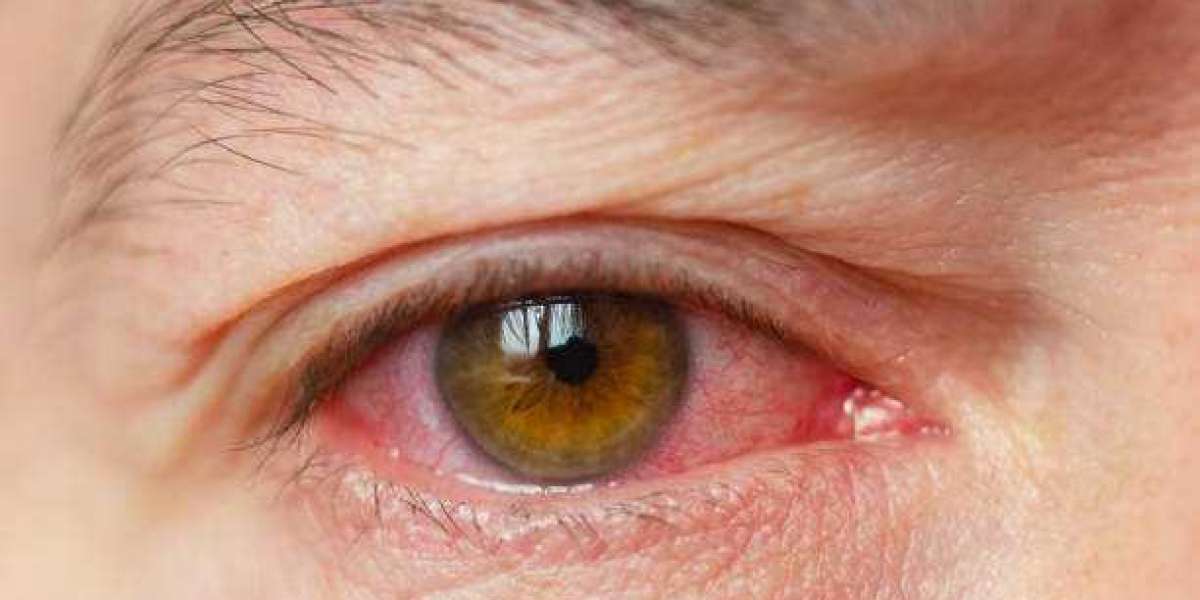Conjunctivitis, also known as "pink eye," is a highly contagious eye infection that can afflict persons of any age. It is defined by inflammation or infection of the conjunctiva, a thin, transparent membrane that covers the white area of the eye and lines the inside of the eyelids. The illness can cause redness, irritation, stinging, tears, and discharge in the eyes. While conjunctivitis is usually not dangerous, its contagious nature raises public health concerns, particularly in schools, offices, and other close-contact settings.
Types of Conjunctivitis and Their Infectivity
There are three forms of conjunctivitis: viral, bacterial, and allergic. Among these, viral and bacterial conjunctivitis are communicable, while allergic conjunctivitis is not.
Viral Conjunctivitis:
Adenoviruses are typically responsible for viral conjunctivitis, which is the most prevalent form. It frequently accompanies symptoms of a cold or respiratory infection and spreads rapidly from person to person. It can spread through direct contact with infected eye fluids, contaminated surfaces, or even breathing droplets.
Bacterial Conjunctivitis:
Bacterial conjunctivitis, caused by germs such Staphylococcus aureus, Streptococcus pneumoniae, and Haemophilus influenzae, is contagious. It is transmitted through direct touch with infectious fluids, contaminated hands, towels, or cosmetics.
Allergic Conjunctivitis:
Allergic conjunctivitis is caused by allergens such as pollen, dust, or pet dander. It is not contagious and usually affects both eyes, along with accompanying allergy symptoms such sneezing or nasal congestion.
How Long is Conjunctivitis Contagious?
The contagious time varies on the kind and severity of conjunctivitis.
Viral conjunctivitis is communicable for the duration of the symptoms, which is typically 7 to 14 days. In certain situations, it might linger as long as 2-3 weeks.
Bacterial conjunctivitis may be infectious for 24 to 48 hours after starting antibiotic treatment. Without therapy, illness could persist 7 to 10 days.
Since it’s difficult to tell which type someone has just by looking, it’s best to treat all cases as potentially contagious until a doctor can provide a diagnosis.
How does conjunctivitis spread?
Conjunctivitis spreads in a variety of ways, especially in close-contact environments:
Touching the eyes with dirty hands.
Sharing personal stuff such as towels, cosmetics, and eye drops.
Contact with infected surfaces, such as doorknobs, handrails, and telephones.
Coughing and sneezing, particularly in cases of respiratory diseases.
Children are especially sensitive since they constantly touch their eyes and faces and are in close proximity to others in schools or play areas.
When to See a Doctor?
If you have signs of conjunctivitis, such as red, itchy, watery eyes with discharge, consult a doctor for a proper diagnosis. This is especially important if you have pain, impaired vision, light sensitivity, or if the symptoms last more than a few days.
Prevention: How to Protect Yourself and Others.
Conjunctivitis can be prevented by practicing excellent cleanliness, raising public awareness, and receiving appropriate medical care. Here are some practical approaches to reduce risk:
1. Practice proper hand hygiene.
Washing your hands frequently with soap and water is the most effective way to prevent the spread. If soap is not available, use hand sanitizer instead.
2. Avoid touching your eyes.
Keep your hands out of your eyes unless you're applying medication. If you must touch your face, wash your hands first and then.
3. Do not share personal items.
Do not share towels, washcloths, pillows, eye makeup, or contact lenses with anyone. Replace your eye makeup on a regular basis, and avoid using expired items.
4. Clean surfaces.
Regularly disinfect frequently touched surfaces, such as doorknobs, light switches, and mobile phones, to eliminate bacteria.
5. Stay at home when infected.
If you or your kid has conjunctivitis, stay home from work, school, or daycare until the infection resolves or a doctor confirms it is no longer contagious.
6. Use Prescribed Medications. Properly
When using antibiotic or antiviral eye drops or ointments, carefully follow your doctor's recommendations. Finish the entire course, even if symptoms resolve quickly.
7. Avoid contact lenses During Infection.
Wear contact lenses only after the infection has cleared and your eye doctor has given you the go-ahead.
8. Educate others
Awareness initiatives in schools and community centers can help people recognize signs and act quickly to prevent outbreaks.
Conclusion
Conjunctivitis is very contagious when caused by viruses or bacteria, thus prevention is critical to halting its spread. Most instances can be resolved quickly and without difficulties by following simple hygiene habits and seeking timely medical assistance. Staying knowledgeable and cautious will safeguard not just your own eyes, but also those of those around you.







